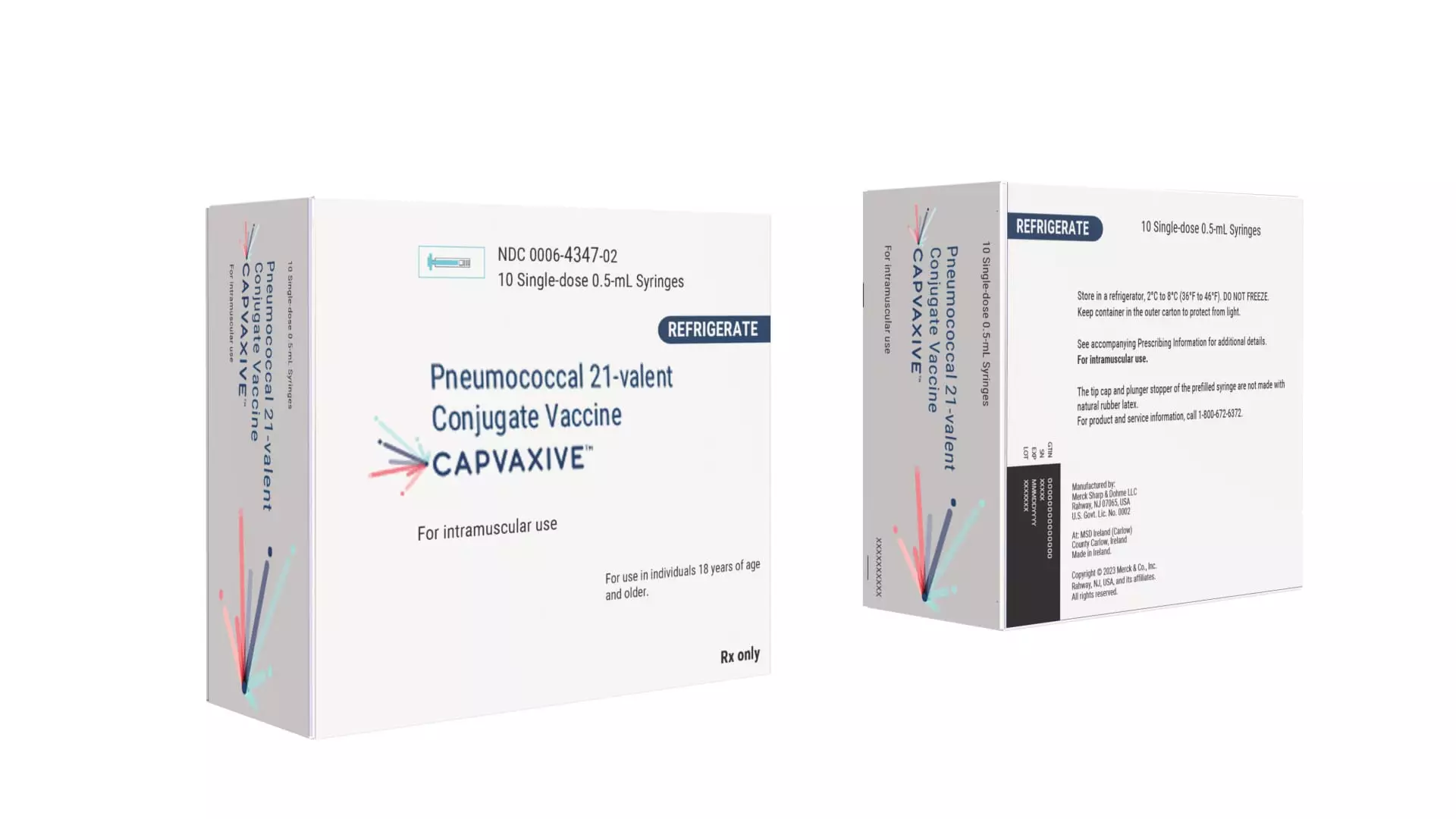The recent announcement of the FDA approval of Merck’s new vaccine, Capvaxive, to protect adults from pneumococcus bacteria is a significant advancement in the field of healthcare. This vaccine is specifically designed to prevent a severe form of pneumococcal disease that can lead to pneumonia, meningitis, and bacteremia. While the importance of protecting adults, especially those at higher risk, from such illnesses cannot be understated, there are several critical aspects of this news that warrant deeper analysis.
Heather Platt, Merck’s product development team lead, highlighted the impact of chronic health conditions on the risk of pneumococcal disease and the subsequent hospitalization and loss of work. This underscores the importance of having preventive measures like Capvaxive available for adults. Additionally, with around 150,000 U.S. adults being hospitalized with pneumococcal pneumonia annually, the market potential for this vaccine is substantial. Analysts predict that the market for pneumococcal conjugate vaccines could grow from $7 billion to over $10 billion in the coming years.
Merck’s entry into the pneumococcal vaccine market for adults introduces competition, particularly with Pfizer’s Prevnar 20, the current leader in the market. While Merck’s new vaccine is positioned to capture a significant share of the market due to its broader protection and unique strains coverage, it will still need to overcome the existing market presence of Pfizer. Merck’s strong focus on data and clinical resonance among clinicians and policymakers could be a key differentiator in gaining market share.
The approval of Capvaxive by the FDA was backed by data from Merck’s late-stage trial, STRIDE-3, which compared the vaccine to Pfizer’s Prevnar 20 in adults aged 18 and above. The trial showed promising results in terms of efficacy and coverage of relevant strains of pneumococcus. Merck’s vaccine protects against strains that are not included in any other approved vaccine for pneumococcal disease, highlighting its unique value proposition.
Despite the FDA approval, there are still challenges ahead for Merck in terms of market access and adoption of Capvaxive. The upcoming advisory panel meeting to determine eligibility for the vaccine will be crucial in shaping the initial rollout strategy. Additionally, the competitive landscape with established players like Pfizer presents both opportunities and challenges for Merck. It will be essential for Merck to navigate these challenges effectively to maximize the potential of its new vaccine.
The FDA approval of Merck’s Capvaxive marks a significant milestone in the fight against pneumococcal disease in adults. The potential impact on public health, coupled with the market potential and competitive dynamics, makes this development a critical one for both Merck and the healthcare industry as a whole. While there are challenges ahead, the scientific basis and clinical evidence supporting the vaccine provide a strong foundation for its success. Moving forward, it will be essential for Merck to execute a strategic and targeted approach to ensure the widespread adoption and utilization of Capvaxive for maximum benefit.

